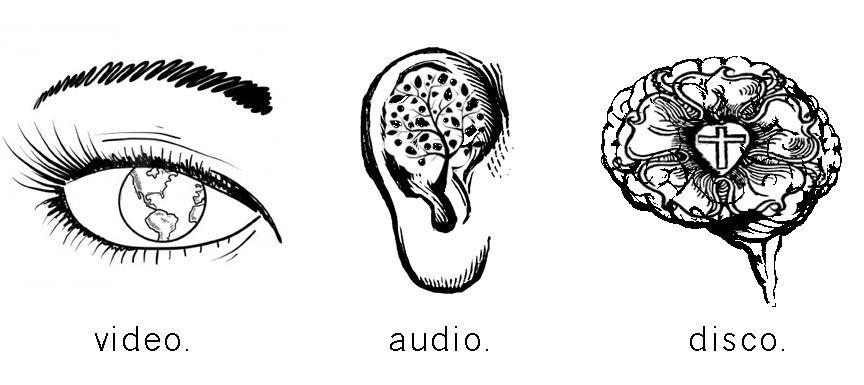
I wouldn't be surprised if somewhere out there in Sunday School Land there are two felt-board cutouts of Adam and Eve - naked. Well, with fig leaves obstructing their "hoo-hahs," of course. Nonetheless, the images of a naked man and a naked woman are central to the traditional view of the Creation Narrative.
Without taking away from this traditional opinion, I have been wondering if the conventional images of naked people can offer more than a shocking, R-rated Bible story. Perhaps they are also an insightful metaphor concerning our relationship with God.
In New Seeds of Contemplation Thomas Merton discusses human identity in relation to God:
"Everyone of us is shadowed by an illusory person: a false self. This is the man that I want myself to be but cannot exist because God does not know anything about him. And to be unknown to God is altogether too much privacy.
All sin starts from the assumption that my false self, the self that exists only in my egocentric desires, is the fundamental reality of life to which everything else in the universe is ordered. Thus, I use up my life in desire for pleasures and the thirst for experiences, for power, honor, knowledge, and love, to clothe this false self and construct its nothingness into something objectively real.
And I wind experiences around myself and cover myself with pleasures and glory like bandages in order to make myself perceptible to myself and to the world, as if I were an invisible body that could only become visible when something visible is covered its surface."
I found a few words in this text very interesting. Merton suggests that we are like invisible bodies clothing ourselves with "visible" qualities, covering ourselves with tangible experiences so that we may construct and be in control of our identity.
Consider the parallels with the Creation Narrative. Before eating from the tree Adam and Eve's identities were fully found in and with God. They were nude and unashamed. They were naked and complete. God saw them and they were Good.
After eating the fruit their way of seeing changed and they found themselves lacking. They immediately covered themselves - symbolizing the construction of their own identity. After all, what did the serpent promise? That they would be like God; that is, in control, on their own, independent from God.
And not only did the man and woman's sight change, but God Himself could no longer see them (v. 9). As Adam and Eve clothed themselves they simultaneously hid themselves from God. Merton states that "... there is no substance under the things with which [we] are clothed [and] ... God does not know anything about [these things]."
Perhaps another Sunday School felt-board kit could have a naked Adam and Eve labeled 'Good' or 'Whole.' And then a handful of felt shirts, shorts, jeans, socks, etc. labeled things like power, money, love, knowledge, vanity, success, or popularity. These are some of the clothes with which we attempt to build our identity, but only become less and less visible to God (in the same sense as C.S. Lewis describes the ghostly people in The Great Divorce). Maybe the clothes would be the same color as the felt-board; causing the illusion that Adam and Eve are disappearing when the clothes are added.
As Merton suggests, "the secret of my identity is hidden in the love and mercy of God. ... Ultimately the only way that I can be myself is to become identified with Him in Whom is hidden the reason and fulfillment of my existence. ... If I find Him I will find myself and if I find my true self then I will find Him."
So come on all people now, let's get naked... and be seen.
